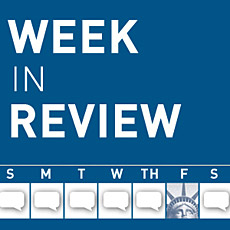
Which search engine forces you to share your personal data with almost all of its products and sites?
A school district in which state will stop illegally promoting religion to public school students after a settlement with ACLU plaintiffs?
Which amendment did the government violate when it placed a GPS tracking device on Antoine Jones’s car?
Of which band is Billy McCarthy, who talks about solitary confinement in a new Prison Voices podcast, the singer and songwriter?
ACLU Lens: Google's New Privacy Policy
This week, Google announced a new privacy policy effective March 1. The new policy is consistent across the vast majority of Google products, and it’s in English; you don’t have to speak legalese to understand it. But, the new privacy policy makes clear that Google will, for the first time, combine the personal data you share with any one of its products or sites across almost all of its products and sites (everything but Google Chrome, Google Books, and Google Wallet) in order to obtain a more comprehensive picture of you. And there’s no opting out.
Don't B-SHOCked: Settlement Shows Public Schools Can't Proselytize
A federal judge signed and entered a consent decree and order this week in the ACLU’s case challenging widespread and pervasive religious practices in South Carolina’s Chesterfield County School District. The ACLU brought the lawsuit on behalf of a local father, Jonathan Anderson, and his son, who is a student at New Heights Middle School. Both are non-believers. The school district’s unlawful practices promoting religion garnered national attention after a video was posted online documenting a school-day assembly that featured a Christian rapper who calls himself “B-SHOC”. The assembly also included a sermon delivered by an evangelical youth minister, and students were asked to sign cards pledging themselves to Jesus. Students who did not want to attend the assembly were told that they could instead spend the afternoon in in-school suspension.
Supreme Court Rules Government Violated Privacy Rights in GPS Tracking Case
In a major victory for privacy, this week in U.S. v. Jones the Supreme Court unanimously held that, “The Government’s attachment of the GPS device to the vehicle, and its use of that device to monitor the vehicle’s movements, constitutes a search under the Fourth Amendment.” The Court found that the government violated the Fourth Amendment, which protects Americans from unreasonable searches, when it placed a GPS device on Antoine Jones’s car and tracked his movements continuously for a month.
It is a fantastic privacy decision from the court, and we’re hoping it also leads to some fantastic privacy decisions by Congress. The law must catch up with new technology; ask Congress to support the GPS Act now!
Podcast: Billy McCarthy of We Are Augustines talks about Solitary Confinement and Mental Illness
Billy McCarthy is the singer and songwriter for the band We Are Augustines. Many of the songs on the band’s critically acclaimed album Rise Ye Sunken Ships were inspired by McCarthy’s brother James, who suffered from mental illness and took his own life after spending five years in solitary confinement in a California prison.
In this new podcast, McCarthy talks about what it’s like to have a family member confined to solitary and the tragic outcome.
This is your week in civil liberties. Let us know if this is useful or if you'd like to see changes. Share your thoughts: ideas@aclu.org
Learn more about your rights: Sign up for breaking news alerts, follow us on Twitter, and like us on Facebook.



